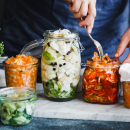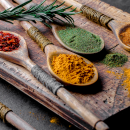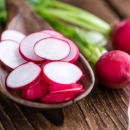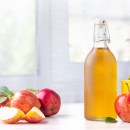Best foods for gut health
Discover why eating a diverse diet rich in plant-based and fermented foods is crucial for a healthy microbiome...
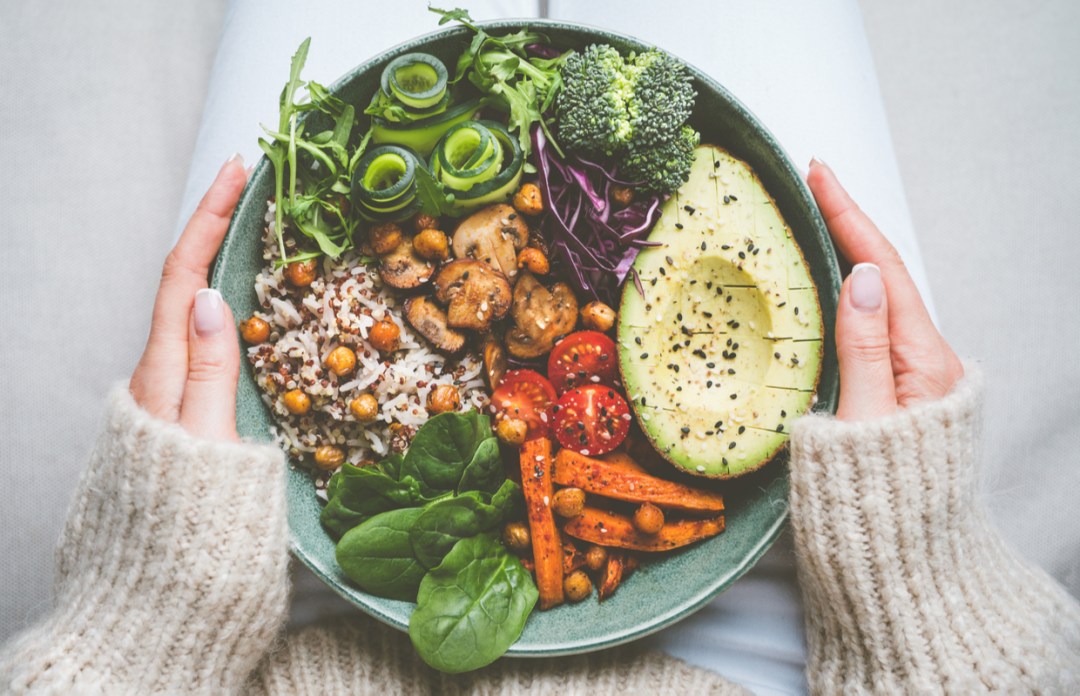
Lisa and Alana Macfarlane, the twins behind gut health platform The Gut Stuff, along with their team of experts, share the best foods for supporting your gut health…
Eating a diverse diet rich in any and all plant-based whole foods will be beneficial for your gut health. However, some particular foods offer an even greater number of benefits for your microbiome. Without further ado, here are some of the best foods you should incorporate into your diet for improved gut health…
7 best foods for gut health
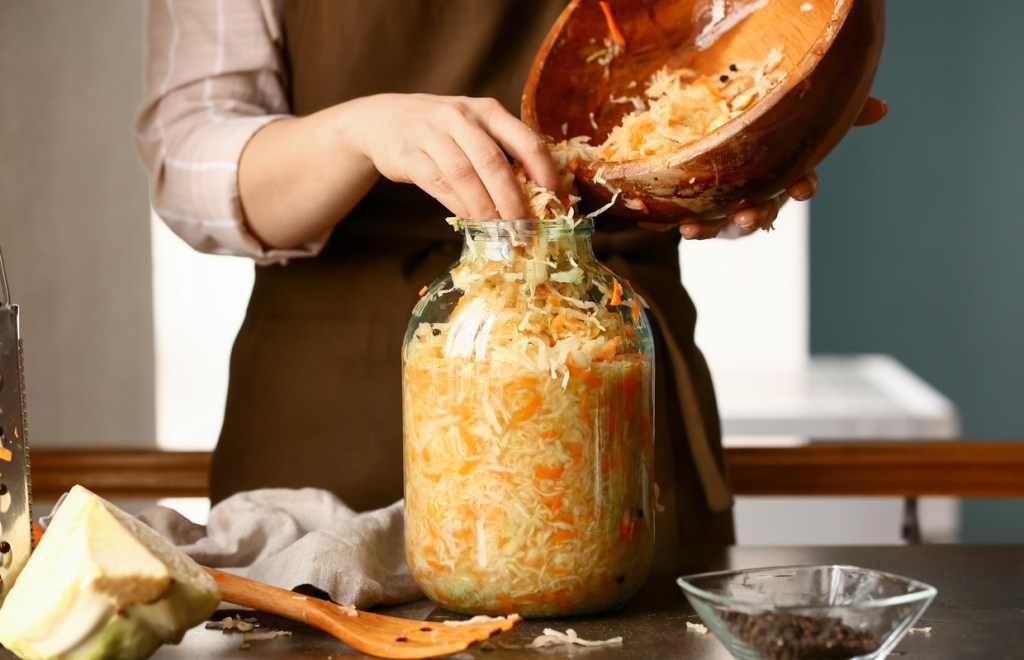
1. Sauerkraut
Raw, unfermented sauerkraut is teeming with bacteria, of the good kind! The live nature of ferments means it takes some time to get used to, so start out with small amounts of sauerkraut – a teaspoon per meal – to get used to it and see how you find it.
2. Polyphenols
Polyphenols are protective compounds found in lots of plant foods and are typically in higher quantities in brightly coloured fruit and veg. Your gut microbes convert polyphenols from plants into something your body can use.
They then have antioxidant properties and act as mini cheerleaders for your microbes, helping them perform at their best. Colourful vegetables, fruit, tea, coffee, dark chocolate, legumes and olive oil are all good sources.
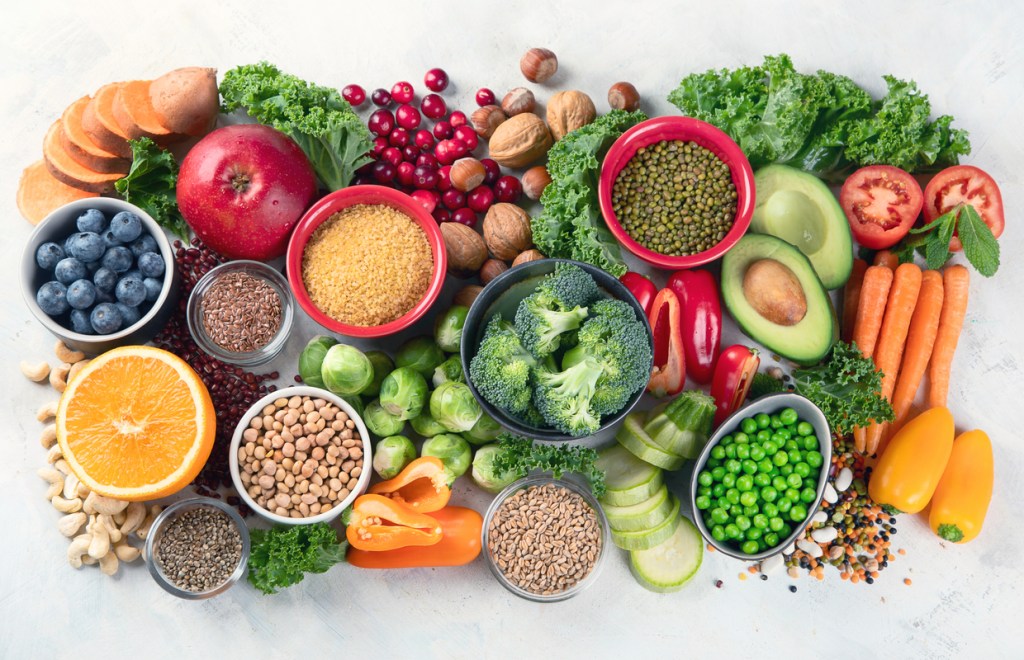
3. Fibre
You’ll get this if you eat plenty of the above! But most of us don’t get enough fibre per day – you need at least 30g. Fibre feeds your gut bugs and also increases the bulk and softness of your poo, which helps keeps you regular.
Load up on veggies and fruits in their whole forms, including skins where edible. Nuts and seeds and legumes are also great. Start off slow, with an extra portion of fibre a day and then gradually increase.
4. Kimchi
This originates from Korea, dating back more than 3,000 years, where salt was used as a method of preserving vegetables during the cold winter months.
It typically contains cabbage and flavourings such as garlic, ginger, and chilli peppers. Like sauerkraut, it contains live bacteria. Start slow and build up. We love it with houmous.

5. Kombucha
If you’re into fermented foods, refreshing tonics such as kombucha will appeal. It’s made using live cultures referred to as ‘grains’ or a ’SCOBY’.
The cultures feed off the sugar in the ferments, transforming to a small amount of alcohol, acetic acid and carbon monoxide while the microbes multiply. It is a great alternative to fizzy preservative-laden drinks.
6. Kefir
This is another fermented drink, usually made with dairy milk although you can get it made with non-dairy milk alternatives and even water.
Kefir grains are added to milk and water and ferment either naturally present sugar or added sugar (usually in water kefir), the by-products turn it sour and slightly fizzy.
It’s an acquired taste but worth it for the extra microbes you’ll be consuming. The kefir grains digest most of the lactose (milk sugar), making it easier to digest for a those who have trouble with lactose.
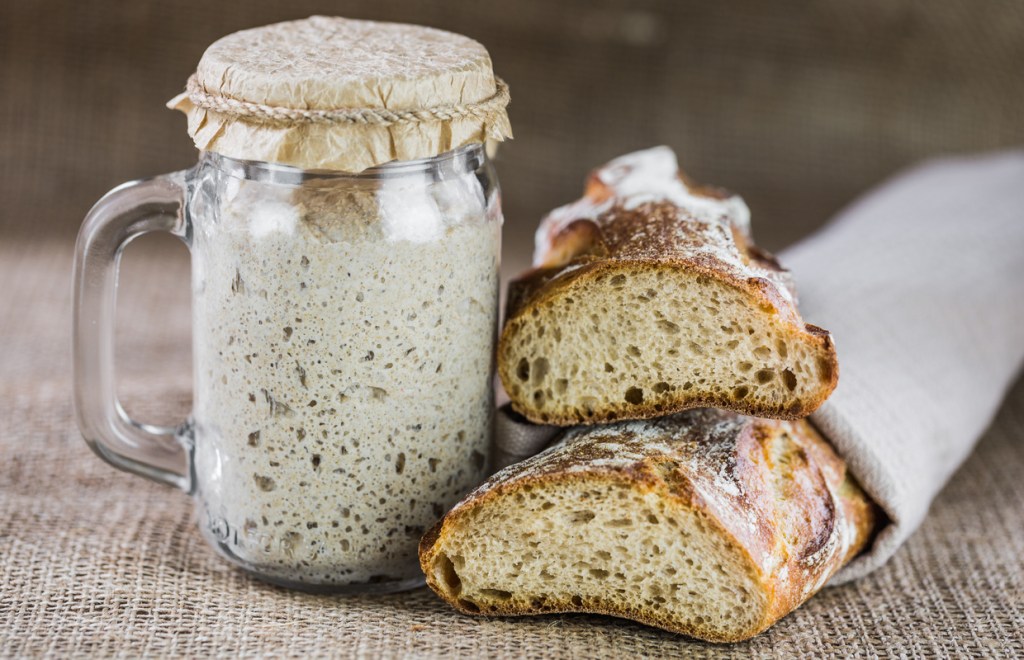
7. Sourdough
A traditional sourdough is a live culture of flour and water, referred to as a ‘mother’ or ‘starter’ containing a blend of lactobacillus bacteria and yeast.
These produce beneficial by-products that look after your gut. The minerals iron, magnesium and zinc are also made more available by the fermentation process. A sourdough starter can be kept for ages with minimal maintenance, ready for whenever you want to bake.
The importance of plant-based foods for gut health
Research shows that if you eat 30 or more different plant-based foods a week, you’ll have a more diverse mix of gut microbes than those who eat less than 10.
A diverse microbiome supports the production of ‘happy hormone’ serotonin, 90 per cent of which is found in the gut. Serotonin lifts your mood, calms you down and essentially helps you feel cheery.
5 tips for eating 30 different plant-based foods every week:
- Use mixed bags of salad.
- Use each colour of pepper (each counts separately).
- Buy a bag of mixed frozen veg.
- Use nut and seed mixes to sprinkle on salads.
- Use a variety of pastas, such as lentil, pea and chickpea.
To find out more about gut health and get Alana and Lisa’s six-week Gut Diaries, which contains top tips as well as space for your weekly shopping list, visit their website thegutstuff.com.

